When I recently attended the charming Burnaby Lyric Opera performance of La Bohème at the Shadbolt Centre for the Arts, the afternoon brought back memories of many lovely productions of the popular Puccini opera. Surprisingly, considering how familiar I was with the opera, I had only seen one other production on stage, and that was with the Vancouver Opera in 1970.
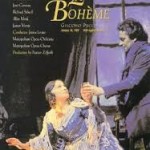
However, I had watched several filmed productions, including the wonderful Zeffirelli film with Mirella Freni and a Metropolitan Opera version in which Teresa Stratas was by far the most consumptive-looking Mimi I have ever seen. The glorious score is familiar to me from listening to the Pavarotti/Freni recording many times, not to mention from working on the arias with the wonderful Luigi Wood in my younger days as a singer.
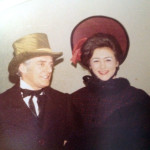
My familiarity with La Bohème also stems from experience on the other side of the curtain. I had been in the VOA chorus for the company’s 1976 production, which was directed by Jan Rubes, and starred Clarice Carson as Mimi, William McKinney as Rodolfo and Mary Costa as Musetta. The chorus as a whole was only on stage in Act II, by far the liveliest act and great fun for the participants. However, the few tiny bits and pieces from Act III—customs officers, milkmaids and peasants scurrying back and forth between the customs house and the tavern—were allotted to a handful of the chorus singers too. My memories of that scene are vivid.
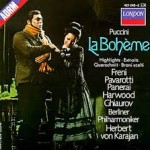
The setting is a cold February morning and the snow is slowly falling. I can still remember the feel of the chill in the air, which could have been a draught from the wings as I crossed the massive Queen Elizabeth Theatre stage, but more likely, it was the dim blue lighting and the sporadic snowflakes that created such a wintry atmosphere that I actually felt cold. It was eerie on that vast stage, looking back at the warmly lit windows of the tavern, and then gliding across to the snow-covered customs house. No wonder, years later, when wanting a suitably spine-chilling atmosphere for a mystery story, I recalled this experience and gave my heroine, Philippa, one of those bit parts. Naturally, in between singing her chorus music, she also solves the murder of a spectacularly unpopular prima donna. Appropriately, the story is titled “Mimi’s Farewell” and is part of an upcoming collection in the Beary mystery series.
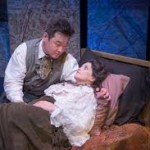
The subject matter of the opera lends itself well to the mystery genre. Based on Henry Mürger’s Scènes de la Vie de Bohème, the opera deals with the life of young artists, who can sometimes be volatile and insecure individuals. Public perception conventionally thinks of Mimi and Rodolfo’s relationship as a gloriously romantic love affair, but their story is actually a tale of two people every bit as riven by jealousy and quarrels as Musetta and Marcello, the secondary characters who spend most of their onstage time having spats. The difference is that, in the principals’ case, the negative scenes happen offstage. But what a perfect scenario for a mystery story where the couple’s relationship differs dramatically on stage and off and the detective must pick up the nuances that distinguish what is real and what is histrionic.
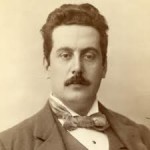
While it was fun to use the darker aspects of Mimi and Rodolfo’s relationship in my mystery writing, I found a use for their more conventionally romantic image when writing my play, Body and Soul, which is due to premiere with the Vagabond Players in October of this year. The setting is a heritage house, haunted by a ghost who, in life, was a leading soprano with the local operatic society. Her most glorious memories are of moments on stage with her tenor and lover, Umberto, as they sang the love duet from La Bohème. Needless to say, the occupants of the house have to be very careful about their choice of music if they feel like breaking into song. More news to come on this project. Thank you, Puccini! So much inspiration in one glorious opera!
